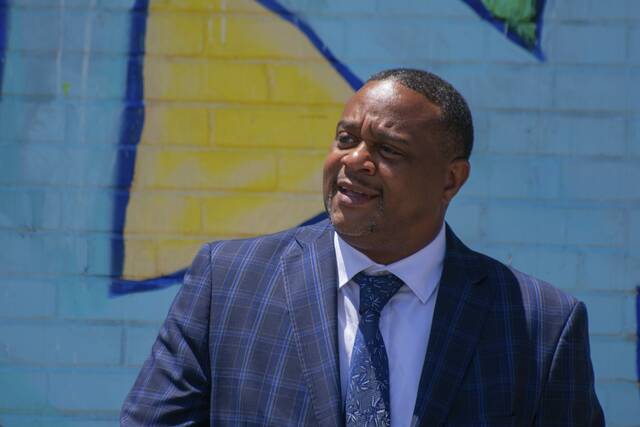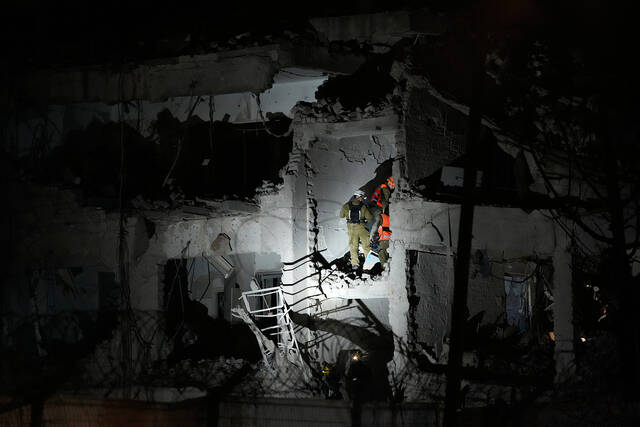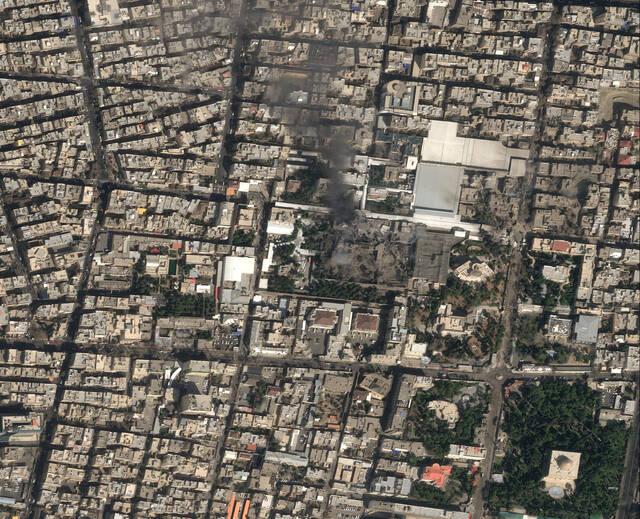After Pittsburgh Mayor Ed Gainey presented his 2023 budget to City Council this week, council members are diving into the proposal before taking a final vote on it.
Their weekslong budget process began Tuesday with a budget proposal overview. On Wednesday, they will begin a series of budget hearings that take a closer look at the budgets for each city department, as well as entities like the Urban Redevelopment Authority, Pittsburgh Land Bank, Pittsburgh Housing Authority and Pittsburgh Water and Sewer Authority.
“The mayor’s budget meets the legal requirements,” Peter McDevitt, director of City Council’s budget office, said. He explained that the budget is balanced and maintains at least a 10% fund balance ration and less than a 12% debt service ratio, the requirements set forth for the budget in the city’s home rule charter.
The proposed budget does not include a tax increase.
The city’s operating budget — which calls for a seven percent increase in spending from 2022 — includes investments that the mayor has said aim to create “safe neighborhoods, welcoming communities and thriving people.”
That includes adding 15 drivers and 41 laborers to the Department of Public Works staff to improve snow response and lot maintenance efforts, as well as six additional paramedics and a new investigator who will focus on allegations of discrimination and harassment.
The operating budget also proposes to fund new teams that would be tasked with maintaining bridges, tackling landslide and slope issues and focusing on traffic mobility issues.
The budget predicts the city will pull in nearly $686.5 million in revenues, said Rea Price, deputy director of City Council’s budget office.
Taxes make up 77% of the city’s revenues, she said, with real estate tax alone accounting for about 23% of the city’s revenues projected next year. American Rescue Plan Act dollars will constitute about 7% of revenues in next year’s budget.
ARPA funding, she said, will be used in the 2023 and 2024 operating budgets. After that, it will be used exclusively in the capital budget until it expires at the end of 2026.
The largest expenses listed in Gainey’s proposed operating budget are salaries and benefits for city employees. About 17% of the city’s operating budget will go to pension contributions, including the removal of the social security offset for nonunion employees that was approved last year.
The city is planning to add 132 new employees next year, bringing the total of city workers to over 3,500, Price said. That’s a roughly four percent increase to the city’s workforce.
New positions include 12 new employees in the Department of Permits, Licenses and Inspections, over 60 new workers in the Department of Public Works, a dozen new hires in the Department of Mobility and Infrastructure, six new EMS personnel and additional staffing for Parks and Recreation and City Planning.
The Department of Public Safety makes up 60% of the city’s workforce. The budget plans for 900 police officers — though the number is currently lower — as well as 667 firefighters, 211 paramedics, 16 animal controllers and 80 crossing guards.
Most union employees are budgeted to receive a 3% increase, while nonunion workers currently are slated to see only a 2% pay raise.
Councilman R. Daniel Lavelle, the finance chair, said he is requesting the budget office calculate how much it would cost to give nonunion employees the 3% pay raise “I believe they rightfully deserve.”
Repaying the city’s debt will take up about 10% of the operating budget, Price said.
The city’s debt — which includes more than $295 million in interest alone — won’t be paid off till 2047, Price said.
In an effort to address public safety and stem the increasing violence seen throughout much of the city, Gainey proposed over $8 million in funding for the Stop the Violence Trust Fund. That includes funding for 19 Community Health and Safety employees, including seven social workers, plus 13 Community Services and Violence Prevention workers.
The budget also calls for more than $5 million in funding for the Office of Community Health and Safety.
Related:
• Mayor Ed Gainey releases preliminary 2023 Pittsburgh budget with no tax increase• Gainey touts investments in infrastructure, public safety in Pittsburgh budget
• Nearly two-thirds of Pittsburgh's federal stimulus money remains unspent, unobligated
The capital budget includes funding for traffic calming projects, continued rehabilitation of ball fields and recreation centers, replacement of outdated fire bureau breathing equipment and upgraded radios for all first responders. There’s also increased funding for condemned property remediation.
“Anybody who’s driven on city streets recently will be happy to see there’s expanded investment in paving,” McDevitt said, acknowledging that council recently reallocated $400,000 more for road paving this year.
More than two thirds of the proposed capital budget is slated to fund engineering and construction projects, with 33% earmarked for facility improvements. About 15% of the capital budget would go to public safety, part of which would pay for new radios for all first responders.
Also included in the budget is a $5 million investment in housing development and the home investment partnership program, more than $1 million in ARPA dollars for the Pittsburgh Land Bank and over $12.5 million for housing assistance and the Housing Opportunity Fund.
The mayor on Monday announced his administration shifted some ARPA dollars to allow for a $3 million investment in food justice initiatives next year.
Gainey’s proposed budget includes a projected ending fund balance that equals 18% of operating expenditures. The city’s home rule charter requires that number be at least 10%, though Price and McDevitt said best practice would be to keep it above 16.7%, or about two months worth of operating expenses.
The city wouldn’t have been able to maintain such a high fund balance without ARPA funds, Price said, and that money goes away at the end of 2026.
In 2026, Price said, the city is planning to dip into the fund balance to cover operating expenses.
Projections show that the fund balance could dip to 10.2% by the end of 2026.
After 2026, she said, the city’s financial footing should get more stable as the city will have paid off much of the debt it incurred while facing financial difficulties in Act 47.
“It’s concerning,” Councilwoman Deb Gross said, to see the fund balance, which she called a “cashflow emergency fund,” slip below the 16.7% recommended threshold.
Council members will hold a series of public briefings over the coming weeks. A public hearing is slated for next Wednesday.
City Council is planning to take a final vote on the budget on Dec. 19.











